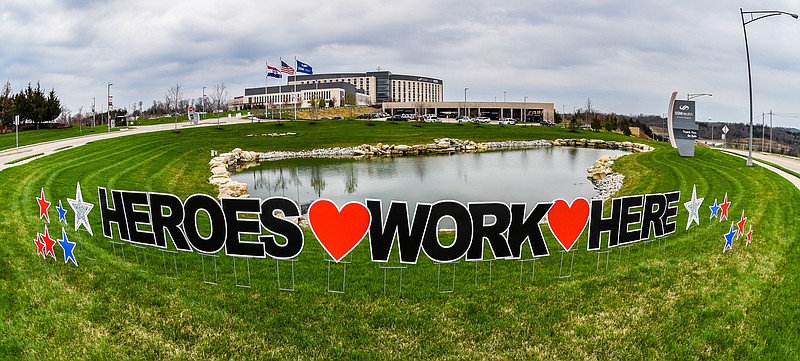[<a href="https://www.newstribune.com/news/health/" style="color:#33AEFF">access the News Tribune Health section</a>]
The Missouri Hospital Association is gathering resources Missouri hospitals know they are going to need during the coronavirus pandemic, said Dave Dillon, MHA vice president of public and media relations.
The MHA, he said, manages the hospital emergency preparedness program for institutions across the state outside the St. Louis and Kansas City Metro areas.
The association has seen how states where the pandemic set in earlier have struggled to maintain levels of much needed products.
"We're trying to help (hospitals) understand what the options are for equipment and supplies," Dillon said. "There are some supplies that are available through state and federal packages that they can obtain from the stockpiles."
The situations with hospitals and health care regions varies throughout the state, he said.
MHA's system for monitoring hospitals' operations allows them to provide real-time updates on their status to the MHA. The statewide system was originally designed to manage ambulance/emergency department diversion issues, he said.
"We can use it to set up queries from hospitals on almost any issue. However, it does require hospitals have the staff and bandwidth to keep it updated," Dillon added.
St. Louis, Kansas City and Columbia were under shelter-at-home orders earlier this week. And health providers in Springfield asked for the same there. Cole County residents, effective today, are also under stay-at-home orders.
"Some hospitals still have adequate supplies and aren't seeing workforce challenges. Others are seeing difficulties," Dillon said. "There are requests for a limited amount of equipment, single-use supplies, beds and other equipment."
The association is thinking outside the box - looking for ideas that can help hospitals sustain the quantity of products they need. For example, he said, the MHA has approached educational institutions about using some of their 3-D printers to manufacture some supplies.
Hospitals in Missouri aren't at a "critical juncture" yet, Dillon said. But they are quickly approaching it.
"The more that we do the type of activities that we've seen in the past week or so - isolation, not working and not going to workplaces - we manage the crisis," he said.
Missouri is beginning to see more deaths, he said.
The state is - so far - unlike California, Washington state and New York, where health care systems are reaching or exceeding capacity.
In promoting social distancing, closing businesses and closing schools, Missouri has done a lot of things right, Dillon said.
"The ability to test (for COVID-19) is increasing with use of private label, and the state continues to increase the number of tests available and processed," he said. "Alternate screening and testing locations are helping to identify positive cases, which can help with patient identification and quarantine. This is good for reducing spread."
It is impossible to know - at this point - when the virus will peak in Missouri. The measures the state has taken are extremely helpful in reducing transmission, he said.
However, the virus is in the community, making it more important to practice isolation, which really goes against human nature, he said.
"The most important goal is to flatten the curve," Dillon said. "That will determine whether we have the resources to manage through or whether we hit capacity."

